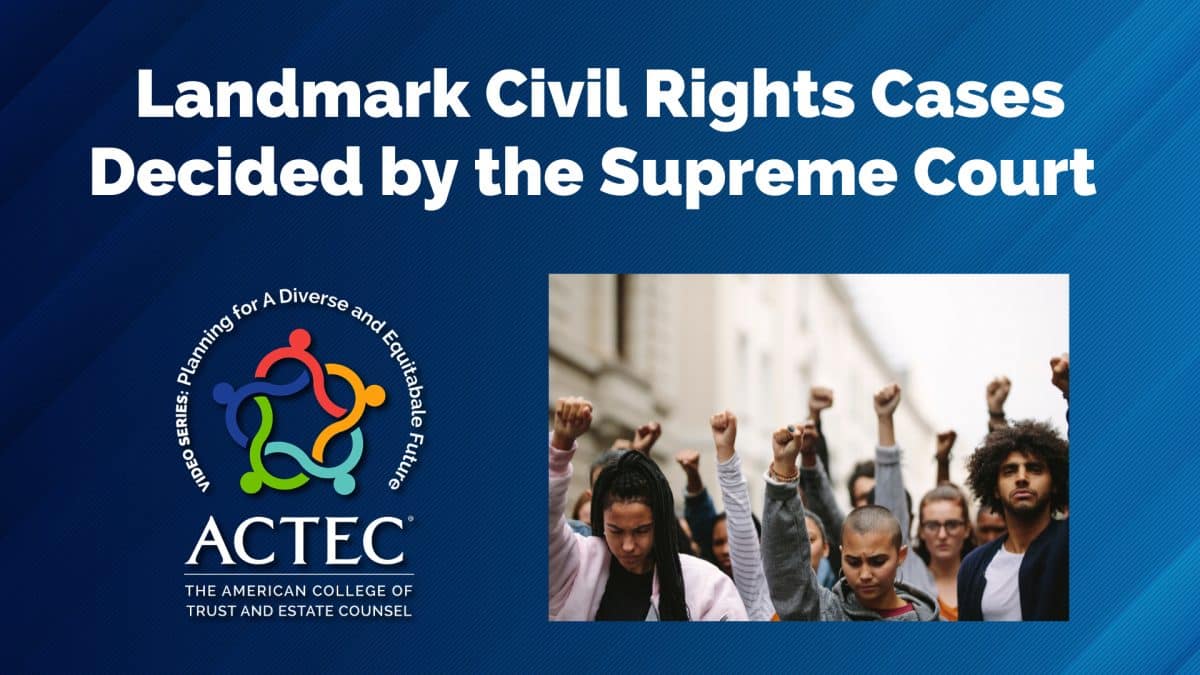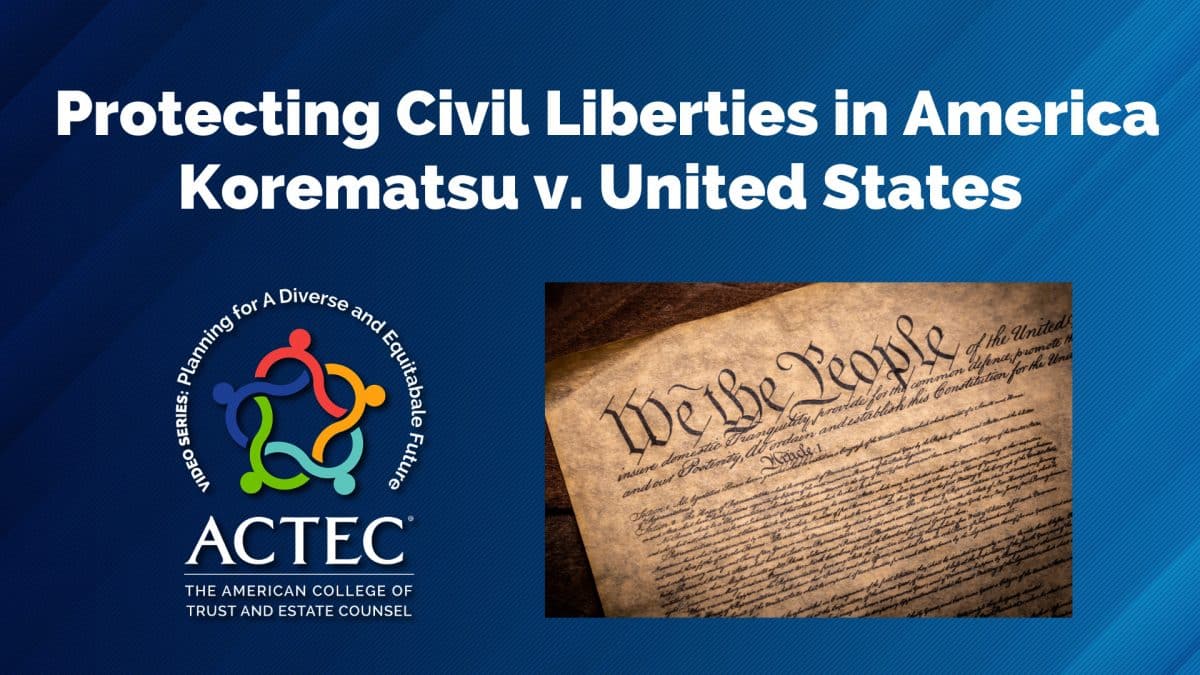Appreciating the past to help plan the future.
Civil rights law encompasses a body of legal principles and statutes designed to protect individuals from discrimination and ensure equal treatment under the law. These laws safeguard fundamental rights and liberties, addressing issues such as race, gender, religion, disability, and other protected characteristics. They prohibit discrimination in various areas, including employment, housing, education, voting, and public accommodations. Civil rights laws are essential for advancing social justice, promoting equality, and combating systemic discrimination and prejudice, allowing individuals to assert their rights and seek remedies when their civil rights are violated. Legal scholars explain critical civil rights cases in this series of videos.
Videos About Civil Rights
Planning for a Diverse and Equitable Future is a video series that discusses issues surrounding racism and offers recommendations to combat inequality provided by the American College of Trust and Estate Counsel (ACTEC).
-
Landmark Civil Rights Cases Decided by the Supreme Court
Author and Professor Christopher Schmidt reviews the history of critical Supreme Court civil rights and equality cases that everyone should know.
-
Protecting Civil Liberties in America
A discussion of the history of the 1944 Supreme Court case Korematsu v. United States and its relevance to present-day civil liberties.


